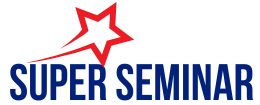In the fast-paced digital world, businesses are scrambling to stay ahead of the game. Enter SaaS development companies—the superheroes of software solutions. With their magical ability to transform ideas into cloud-based applications, they’re making life easier for everyone. Imagine having all your tools in one place, accessible from anywhere, without the hassle of installation. Sounds like a dream, right?
Table of Contents
ToggleOverview of SaaS Development Companies
SaaS development companies play a crucial role in the technology sector, focusing on creating software applications delivered over the internet. They specialize in designing and developing scalable tools that enhance efficiency for businesses. Cloud-based solutions allow users to access applications anytime and anywhere, thus increasing flexibility.
These companies cater to a diverse range of industries, providing customized platforms suited to specific needs. For example, industries such as finance and healthcare often require tailored solutions to meet regulatory compliance and data security standards. SaaS development firms possess the expertise needed to develop such specialized applications efficiently.
Cost-effectiveness remains a significant advantage of SaaS solutions. Instead of investing heavily in hardware and software licenses, businesses typically pay a subscription fee, which allows for predictable budgeting. This model not only reduces upfront costs but also facilitates regular updates and maintenance.
Collaboration tools form another essential aspect of SaaS development. Many companies incorporate features that support team communication and project management. This integration increases productivity and streamlines processes across departments.
User experience is also prioritized during the development process. Focusing on ease of use and intuitive design significantly improves software adoption among clients. Understanding user needs ensures that the final product meets expectations while providing valuable insights for continuous improvement.
Security measures represent a top concern for SaaS development companies. Data encryption, access control, and compliance with regulations like GDPR are vital components in building trust. Businesses rely on developers to implement these security protocols effectively, safeguarding sensitive information from potential threats.
SaaS development companies consistently innovate to keep pace with market demands. They adopt emerging technologies such as artificial intelligence and machine learning, further enhancing application functionalities. Through these advancements, companies create solutions that empower organizations to stay competitive in the digital age.
Key Services Offered

SaaS development companies provide various services tailored to meet business needs. These services enhance operational efficiency and simplify management.
Custom Software Development
Custom software development involves creating unique applications designed to meet specific user requirements. SaaS development companies assess functionalities and design solutions that align with business goals. They focus on scalability to accommodate growth, ensuring applications evolve alongside the business. By prioritizing user experience, these companies deliver intuitive interfaces that facilitate ease of use. They also consider industry regulations, creating compliant solutions that maintain data security. Collaborating closely with clients, they ensure products reflect organizational values and enhance productivity.
Integration Solutions
Integration solutions streamline the connection between different software applications. SaaS development companies facilitate seamless communication among various platforms to optimize workflows. They employ APIs to enhance data flow, minimizing manual input and reducing errors. Integrating tools creates a unified experience, enabling users to access necessary resources effortlessly. These companies prioritize security during integrations, ensuring data protection remains intact throughout the process. With effective integration solutions, businesses can harness the full potential of their software ecosystems, driving productivity and innovation.
Factors to Consider When Choosing a SaaS Development Company
Several critical factors influence the selection of a SaaS development company. Evaluating each aspect ensures the best fit for specific business needs.
Experience and Expertise
Experience showcases a company’s ability to deliver effective SaaS solutions. An established firm often demonstrates proven methodologies across diverse projects. Depth of expertise in relevant technologies is crucial. Companies with experience in industry-standard practices are more likely to meet compliance and security needs effectively. Evaluate their portfolio to assess previous work quality and innovation levels. Strong understanding of user experience design enhances software usability, while familiarity with emerging trends like AI and machine learning indicates a forward-thinking approach.
Client Testimonials and Case Studies
Client testimonials provide insight into a company’s reliability and effectiveness. Positive feedback reflects customer satisfaction and the firm’s ability to meet expectations. Case studies serve as concrete examples of past successes, illustrating how the company tackled challenges and delivered results. Analyzing these documents allows assessment of the company’s problem-solving skills and adaptability. Look for documented outcomes that highlight measurable benefits, such as increased efficiency or cost savings. Strong testimonials and detailed case studies build confidence in a potential partner’s capabilities.
Major SaaS Development Companies to Consider
Several prominent SaaS development companies offer innovative solutions tailored to various business needs. These companies excel in delivering robust, cloud-based applications that drive operational efficiency.
Company A
Company A specializes in creating custom SaaS applications for businesses across diverse industries. It focuses on user-centric design to enhance user experience, ensuring that applications remain intuitive and easy to navigate. With a strong track record in data security, Company A integrates advanced encryption methods to safeguard sensitive information. Clients appreciate the company’s commitment to compliance with industry standards, which is critical in sectors like finance and healthcare. Its development process emphasizes scalability, allowing businesses to adapt the software as needs evolve. Recent client testimonials highlight significant increases in productivity and cost savings following implementation.
Company B
Company B stands out for its expertise in SaaS integration solutions. They provide seamless connectivity between various software applications, which streamlines workflows and enhances data flow across platforms. A strong emphasis on collaboration tools boosts team communication and project management efficiency. Company B has successfully delivered projects that meet regulatory compliance, earning trust from clients in highly regulated environments. Innovative features, such as AI-driven analytics, enhance application capabilities and provide actionable insights. Clear performance metrics indicate measurable improvements in operational responsiveness, reinforcing Company B’s reputation as a top choice for businesses seeking comprehensive SaaS solutions.
Industry Trends in SaaS Development
Cloud-based applications continue to dominate the SaaS landscape, driven by businesses’ growing need for efficiency. Rising adoption of remote work has further accelerated demand for collaboration tools. These tools enhance communication across teams, ensuring that productivity remains high regardless of location.
AI and machine learning are becoming essential components of SaaS development. Companies utilize these technologies to enhance application functionalities, providing users with smarter and more efficient solutions. For instance, predictive analytics helps businesses make data-driven decisions by analyzing previous trends.
Subscription-based pricing models remain a significant trend within SaaS offerings. Businesses appreciate the cost-effectiveness of predictability in budgeting through monthly fees rather than hefty upfront investments. This model allows companies to allocate funds more effectively, focusing on operational growth.
Security is a critical concern among SaaS users. High-profile data breaches have heightened awareness of the need for robust security measures. Compliance with industry regulations, such as GDPR, increasingly influences how SaaS development companies approach data protection.
Integration capabilities are also a key focus. Organizations frequently demand that SaaS solutions seamlessly connect with existing software, enabling smooth data flow. This trend highlights the importance of streamlined workflows, maximizing overall productivity.
Finally, user experience remains at the forefront of SaaS development strategies. Firms prioritize intuitive design and ease of use to promote adoption among end users. Feedback from clients plays a crucial role in refining products to meet evolving needs effectively.
SaaS development companies play a pivotal role in transforming how businesses operate in the digital age. By offering scalable and customizable cloud-based applications, they empower organizations to enhance efficiency and streamline operations. The focus on user experience and robust security measures ensures that businesses can trust these solutions to protect sensitive data while maximizing productivity.
With the rise of remote work and the increasing demand for collaboration tools, the importance of SaaS solutions is only set to grow. Choosing the right SaaS development partner can make all the difference in achieving operational success and staying competitive. As technology continues to evolve, these companies will remain at the forefront, driving innovation and helping businesses adapt to ever-changing market demands.




